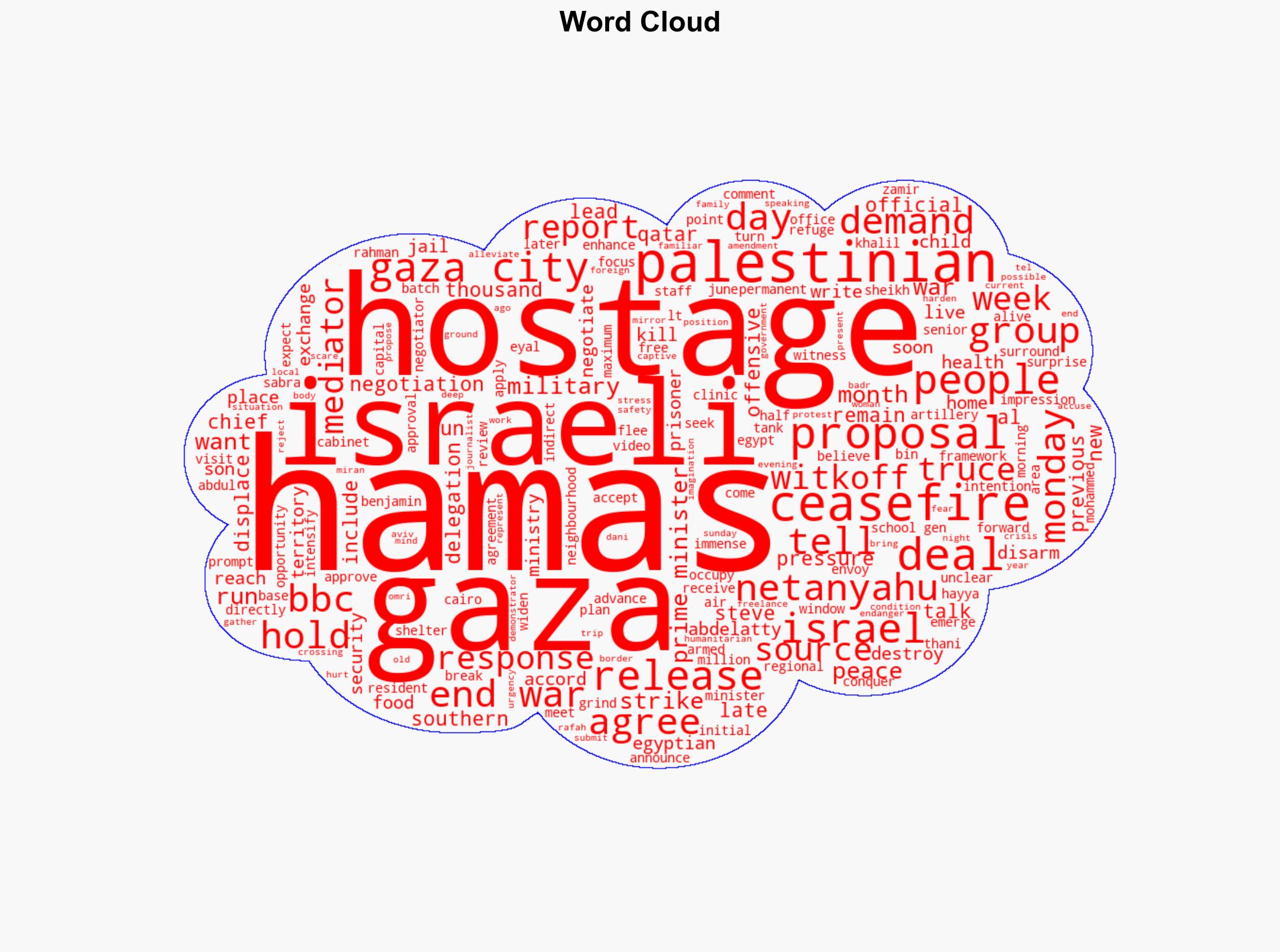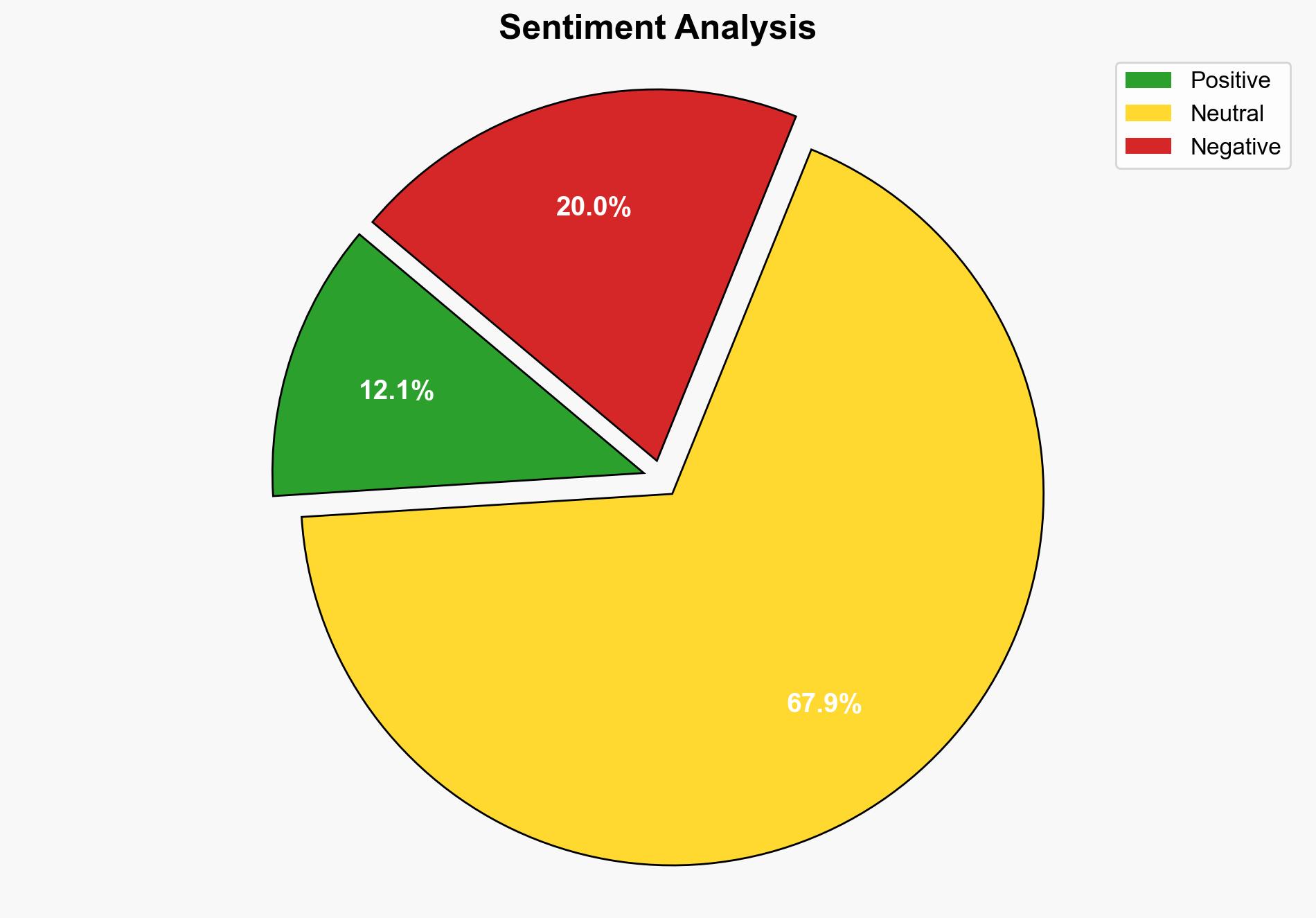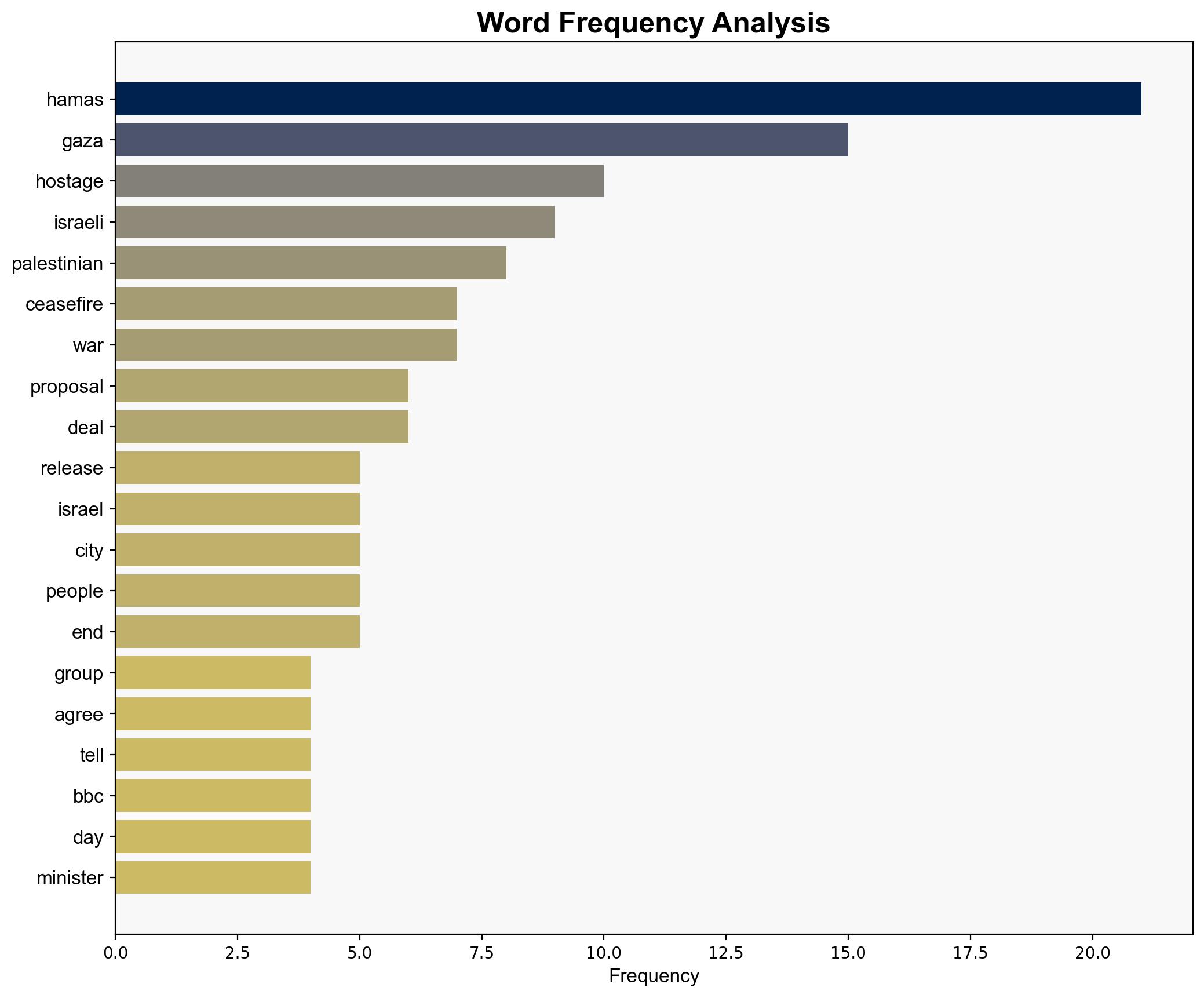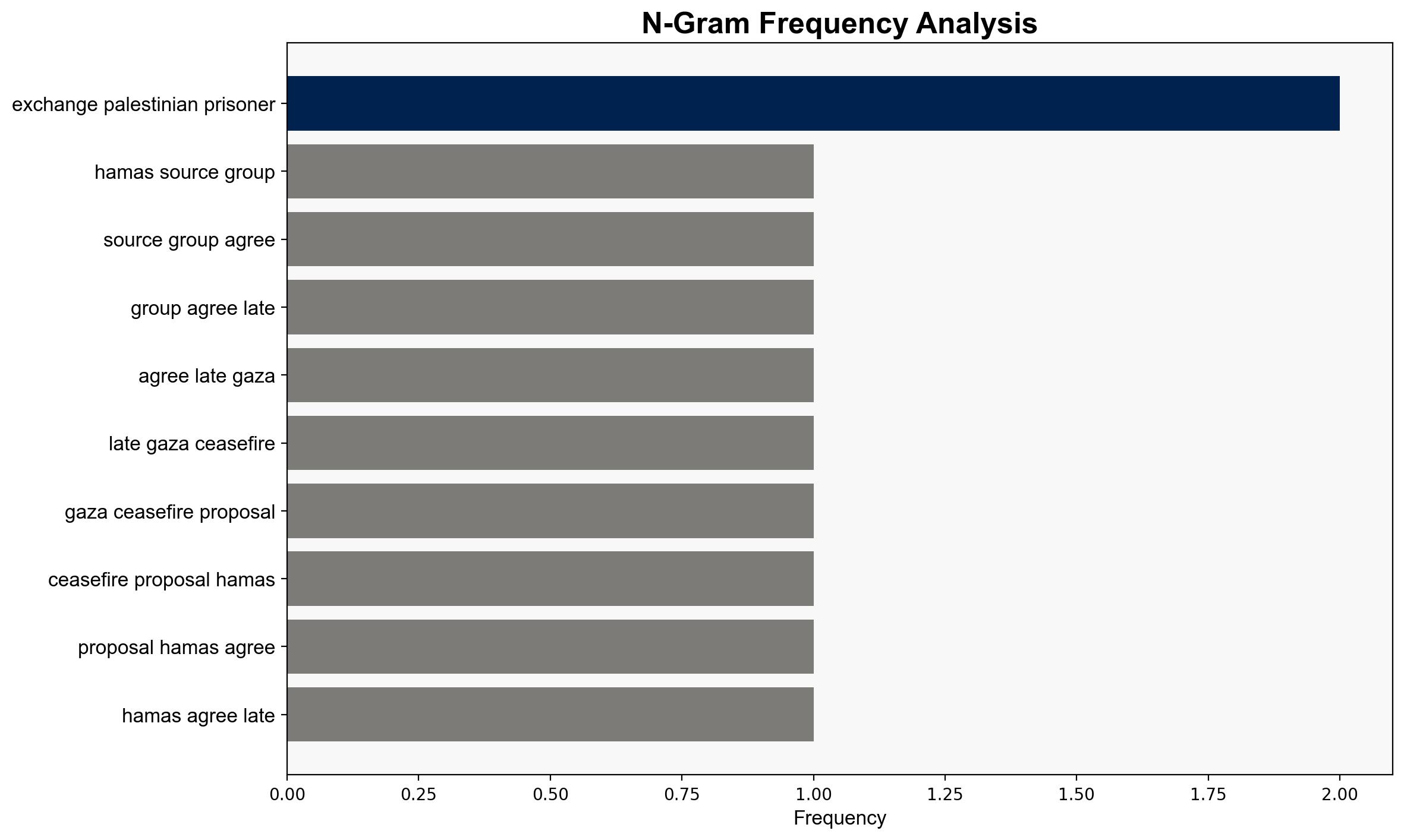Hamas agrees to latest Gaza ceasefire proposal source in group says – BBC News
Published on: 2025-08-18
Intelligence Report: Hamas agrees to latest Gaza ceasefire proposal source in group says – BBC News
1. BLUF (Bottom Line Up Front)
The most supported hypothesis is that Hamas is under significant pressure to agree to a ceasefire due to military and humanitarian conditions, with a moderate confidence level. It is recommended to closely monitor the evolving situation and prepare for potential shifts in strategy by both Hamas and Israel.
2. Competing Hypotheses
1. **Hamas Agrees Due to Military Pressure**: Hamas is agreeing to the ceasefire because of the intensified Israeli military operations and the dire humanitarian situation in Gaza, which is unsustainable for the group in the long term.
2. **Hamas Agrees as a Tactical Move**: Hamas is using the ceasefire agreement as a strategic pause to regroup and strengthen its position, potentially preparing for future conflict escalation.
Using ACH 2.0, the first hypothesis is better supported by the evidence of increased military pressure and humanitarian crises, as well as the involvement of regional mediators pushing for a resolution.
3. Key Assumptions and Red Flags
– **Assumptions**: It is assumed that Hamas’s agreement is genuine and not a tactical deception. It is also assumed that regional mediators have significant influence over the negotiations.
– **Red Flags**: The lack of a clear response from Israel and the potential for internal dissent within Hamas regarding the ceasefire could undermine the agreement. The absence of detailed terms of the ceasefire raises questions about its durability.
4. Implications and Strategic Risks
– **Military Escalation**: If the ceasefire fails, there is a high risk of renewed and intensified conflict, potentially drawing in regional actors.
– **Humanitarian Crisis**: Continued conflict exacerbates the humanitarian situation, increasing regional instability.
– **Geopolitical Tensions**: The involvement of Egypt and Qatar highlights the broader geopolitical stakes, with potential impacts on regional alliances and U.S. interests.
5. Recommendations and Outlook
- Monitor the implementation of the ceasefire closely, focusing on compliance by both parties.
- Engage with regional partners to support humanitarian efforts and stabilize the situation.
- Scenario Projections:
– **Best Case**: Successful ceasefire leads to long-term negotiations and stabilization.
– **Worst Case**: Ceasefire collapses, leading to a broader regional conflict.
– **Most Likely**: Temporary reduction in hostilities with potential for future flare-ups.
6. Key Individuals and Entities
– Benjamin Netanyahu
– Khalil al-Hayya
– Sheikh Mohammed bin Abdul Rahman Al Thani
– Steve Witkoff
7. Thematic Tags
national security threats, regional focus, counter-terrorism, geopolitical dynamics





